Diagnosis
My late husband Brian was first diagnosed with Atrial Fibrillation (AF) in 1990. He was regularly getting what we called palpitations where his heart rate would soar up to 200 bpm. The rate would also be unsteady and irregular and often last for hours. The video below depicts what happens with this type of arrythmia. The top heartbeat is a normal rhythm, the bottom heartbeat shows atrial fibrillation.
Irregular electrical signals disrupt the normal conduction between the SA (Sinoatrial) and AV (Atrioventricular) nodes and cause the atria to quiver. This prevents them from effectively moving blood into the ventricles. It can lead to stroke or other heart related complications. Courtesy AHA/ASA
First the dreaded beta blocker
The first drug he was introduced to was a beta blocker. It did nothing for him except make him feel very ill and made no difference to his arryhythmia. It caused impotence, a serious side effect for any man and IMHO doctors ignore and fail to consider side effects such as this when prescribing a drug. The unfortunate and distressing results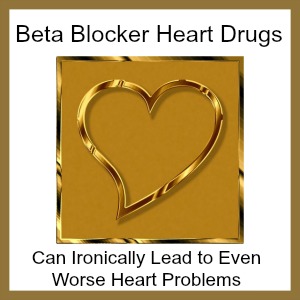 of taking some drugs seem to be pushed aside by Big Pharma as inconsequential and trivial and something patients just have to put up with. Improving the drug to eliminate side effects would need more funding and research which means less profits. As a side note, did you know that Big Pharma spend a vast amount on advertising in comparison to their much smaller funding for research. As for beta blockers, the symptoms they are purported to eliminate are the same symptoms of magnesium deficiency! (There lies clue No. 1).
of taking some drugs seem to be pushed aside by Big Pharma as inconsequential and trivial and something patients just have to put up with. Improving the drug to eliminate side effects would need more funding and research which means less profits. As a side note, did you know that Big Pharma spend a vast amount on advertising in comparison to their much smaller funding for research. As for beta blockers, the symptoms they are purported to eliminate are the same symptoms of magnesium deficiency! (There lies clue No. 1).
Off to the hospital for tests
With continual trips to the doctors because of his condition, he was sent to Hereford hospital in the UK to have tests. As well as AF he was found to have a “floppy valve” which, although the medics said was not too serious, had to be considered when prescribing his next drug which would be flecainide. The somewhat gruesome image here shows a mitral valve that has been calcified making the leaflets swollen and unable to close. A floppy valve or ‘mitral valve prolapse’ is often another condition arrhythmia sufferers have and is particularly prevalent in women. According to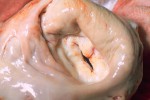 wikipedia a floppy valve is: “Mitral valve prolapse(MVP) (a.k.a. floppy mitral valve syndrome, systolic click murmur syndrome or billowing mitral leaflet) is a valvular heart disease characterized by the displacement of an abnormally thickened mitral valve leaflet into the left atrium during systole.”
wikipedia a floppy valve is: “Mitral valve prolapse(MVP) (a.k.a. floppy mitral valve syndrome, systolic click murmur syndrome or billowing mitral leaflet) is a valvular heart disease characterized by the displacement of an abnormally thickened mitral valve leaflet into the left atrium during systole.”
The specialist said…
The specialist who prescribed the flecainide under the name of Tambocor spoke to Brian about the possible side effects of the drug. He said Brian had two choices, either put up with his condition or take flecainide as a permanent medication which we presumed meant taking it for life.
The specialist also said something which we both thought was strange. “Patients taking flecainide do not present in hospital with heart attack”. As Brian could not function properly with this condition, he opted for the drug. An attack would leave him really debilitated and he could do nothing but rest until it abated.
We did have a friend at the time who also had atrial fibrillation and had suffered the condition for a few years longer than Brian. We asked him what he thought the doctor meant about this strange information. He knew immediately. He was also given this statistic when he was first put on flecainide. He said it meant that anyone suffering a heart attack whilst on this drug, would not recover from it! This was a bit of a shock to us.
Catheter ablation for atrial fibrillation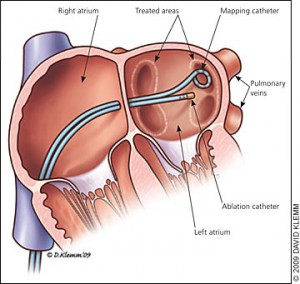
Our friend was on the maximum dose and was about to have his second treatment of ‘catheter ablation for atrial fibrillation‘. He had the operation previously but it didn’t work so the procedure was to be repeated. Brian did not like the sound of it as it involved causing damage by burning part of the heart to try and destroy the area which was giving the false electrical stimulus. An explanation of the procedure I found on the web states – “The aim of this procedure is to destroy or isolate the abnormal sources of electrical impulses that may be driving AF and to alter the tissue of the atria so that they transmit the impulses from the sinus node smoothly. This is achieved by performing ablation within the atria. Ablation means making small burns in the heart tissue, so that it is unable to conduct electrical impulses.”
I think if it had been a succes for our friend Alf, Brian would have looked into it seriously. Alf was on the maximum amount of medication and other medications hadn’t worked for him, so he did not have much alternative but to give it another go. Some sufferers have multiple ablations.
Continued attacks
Brian’s attacks would sometimes last for hours and on a few occasions for days. When this happened, he had to go into hospital to have his heart medicated to bring it out of arrhythmia. Guess what they used? IV magnesium sulphate. (Clue No. 2). Most times it brought him out of arrhythmia after just a few minutes of administering the mineral. Once though, the attack carried on despite the IV medication and the doctors decided they would have to put Brian out and use defibrillators to shock his heart out of the arrhythmia. Just as they were about to give him the anaesthetic, his heart beat dropped to 80 bpm.
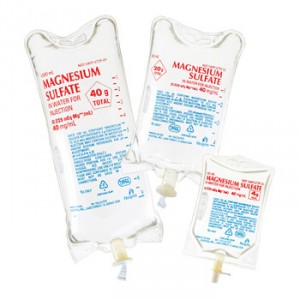 We got to know the triggers that would set off an attack and the worst one for Brian was a good cup of strong coffee which he loved. (A stimulant, clue No. 3). We went on a few holidays mostly to Spain and he was really partial to the spanish ‘Café con leche’. Whilst visiting Paris, on the way to Andalucia in Spain, we went to the Pompidou Centre where they make the most amazing coffee. He just couldn’t resist a taste and proceeded to down 3 cups of the lovely stuff. Within minutes, he went into an attack. It lasted a few hours and I was so worried that I insisted we abandoned our trip and went back to the UK. Once again, the magnesium sulphate brought him out of arrhythmia. This again was a clue I should have picked up on and I regret to this day not knowing or realising the evidence stacking up for magnesium deficiency.
We got to know the triggers that would set off an attack and the worst one for Brian was a good cup of strong coffee which he loved. (A stimulant, clue No. 3). We went on a few holidays mostly to Spain and he was really partial to the spanish ‘Café con leche’. Whilst visiting Paris, on the way to Andalucia in Spain, we went to the Pompidou Centre where they make the most amazing coffee. He just couldn’t resist a taste and proceeded to down 3 cups of the lovely stuff. Within minutes, he went into an attack. It lasted a few hours and I was so worried that I insisted we abandoned our trip and went back to the UK. Once again, the magnesium sulphate brought him out of arrhythmia. This again was a clue I should have picked up on and I regret to this day not knowing or realising the evidence stacking up for magnesium deficiency.
We moved to Spain in 1999 because he always felt better in the warmer climate but in August 2006 he died suddenly. It was an instant death but he did have a warning sign two weeks before when he collapse onto the settee. He came round almost immediately and said he felt his heart stop. His blood pressure, which was usually on the high side, was very low and as I rushed him to the local clinic some 20 miles away, he seemed to recover.  At the clinic, they did an ECG and also declared his blood pressure was perfect. I tried to explain in my broken Spanish that his heart had stopped earlier and his blood pressure would probably not be accurate but they sent him home and just told him to rest.
At the clinic, they did an ECG and also declared his blood pressure was perfect. I tried to explain in my broken Spanish that his heart had stopped earlier and his blood pressure would probably not be accurate but they sent him home and just told him to rest.
Two weeks later on a hot August evening in 2006 just after dinner, Brian (who was a talented instruments maker) was working on a telescope he was making on the porch. I was inside our little casa clearing up and went out to see how he was getting on. He was lying on the floor with his lower legs and feet under him and an electric drill in one hand. He must have been kneeling when he died. It was instant which is some comfort. Sudden cardiac arrest. May I just say that Brian’s body would have been under a lot of stress the moment he died. No 1 stressor – He had just eaten and much energy is moved to the stomach area to digest food which left less energy for the heart and brain. No 2 stressor – the temperature was exceptionally hot and this puts a real burden on the body to keep it cool. No 3 stressor – Brian was working in these hot conditions when he should have been relaxing. No 4 stressor – Brian’s continuous condition of atrial fibrillation and magnesium deficiency would be a vicious circle, depleting the vital mineral even more until in the end it killed him.
 In Part 2 of this post I want to go over the causes of arrhythmias such as AF and what can be done about it, (as if you didn’t know already)!
In Part 2 of this post I want to go over the causes of arrhythmias such as AF and what can be done about it, (as if you didn’t know already)!
Please have your say if you wish to comment on this post. All input is welcome and any questions will be answered. Ches
Spread the word!

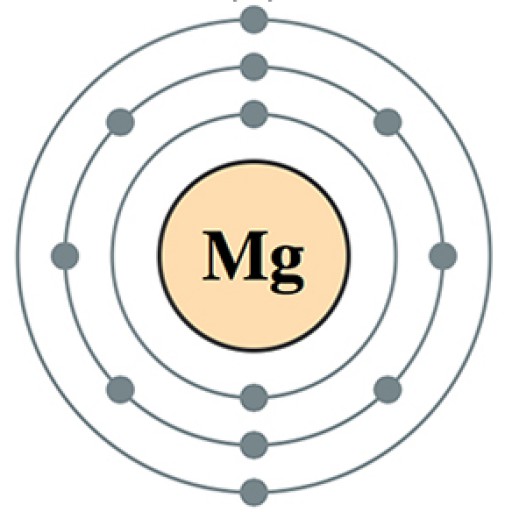
My heart sometimes skips a couple of beats. Usually at least once a day, but lasts for a few seconds. This started in the last few months…Prior to that, it would be once or twice every couple of months. I know this is not as severe as what you’ve described, but maybe the solution is the same. I’ve never paid any attention to my magnesium intake. But now I think I’ll look into it….Thanks
Hi Dave and thanks for commenting and relaying your arrythmia. This is exactly what was happening to me but over a period of time the events were getting closer together and lasted a little longer. Since taking Mg Chloride solution these events slowly started to decrease and now I can’t remember the last time I had one. Taking this supplement will help you avoid all cardiovascular diseases and other conditions such as type 2 diabetes, arthritis, muscle spasms, fibromyalgia… You will definitely feel the benefit so go for it! PS make sure your calcium intake is not excessive. Aiming for a 1 to 1 ratio calcium to magnesium would be ideal. Ches
Hello Ches,
I’m 63 and was troubled by palpitations myself a few years ago. I would have good days and bad days, and sometimes really bad days where they would be continuous all day, then I became interested in health and nutrition and so when on a health kick – eating a lot of nuts, fruit, Avocado’s, green leafy veggie’s etc. and stopped drinking milk. I have not had a problem since then evan though I still get an occasional flutter. I didn’t know it then but it seems, after reading your excellent article, that I must have been deficient in Mg. I intend to take a good supplement now as you recommend, just to make sure.
I’m so glad I came across your website, which incidentally was through Wealthy Affiliate which I just recently joined.
Thank you again for your story and obviously well researched article on Magnesium.
regards Geoffyt1 (WA)
Hi there Geoff and thanks for commenting on my A-Fib blog. I’m really gratified that you have found a way to keep your condition under control and I know you will benefit immensely from taking a good quality Mg supplement. If you go to it will give you all the different supplements there are to take and explain why some are better than others. Mg Chloride solution is definitely the better supplement IMHO, although it is somewhat expensive. Dr Carolyn Dean’s ReMag is of the highest quality. If you are in the UK, we make up Mg Chloride ourselves and I can send you a sample to try. I hope you’re progressing well at the WA community. Good luck and good health to you, Ches
I really appreciate this post and admire you for spreading the word, especially after your tragic loss.
My father was diagnosed with a-fib about 10 years or so ago. He currently has a pacemaker and is on blood thinners. While the pacemaker helps, he’ll still have occasional palpitations. Unfortunately, when he does, they bother him badly because of the pacemaker. Not to mention he has to get the pacemaker batter replaced this year and has to constantly have pacemaker readings.
Preventing it before a-fib starts is definitely important as living with a pacemaker is not easy.
Thank you so much for sharing your story and wonderful information.
Hi Brandy and thanks for reading the post. I’m sorry to hear of your father’s AFib. I wanted to ask why he was not offered catheter ablation? Although it was hit and miss when my husband was considering it in the 1990s, it is now a very successful procedure which can amount to a cure for AFib. Please go to this radio broadcast to learn more. Whatever he does, your father will really benefit from taking a good quality Mg supplement. All the different types on offer are at Best Magnesium Supplements To Take Please take note of the blood thinners that Dr Ryan talks about in the radio show. He himself had A-Fib which has now been cured with catheter ablation. Mg is actually a natural blood thinner; it keeps Calcium (which thickens the blood) dissolved in the bloodstream. Make sure your father is not taking too much Ca. A ratio of 1:1 for Ca:Mg intake is something to aim for. There are many other natural remedies for keeping the blood from clotting. The A-Fib site has a wealth of information about this condition and would be worth looking at. I will be publishing Part 2 of this article tomorrow 5th April. Best wishes to you and your father. Ches
Very nice Prevent Atrial Fibrillation.
Thanks for reading the post Suphat! Ches
Hi Chessie, firstly, I was so sorry to read about your husband. Secondly, you are an inspiration – putting information out about a subject that must really upset you because of your loss. as a help for other people who may suffer with this condition. I wish you well in your venture.
Hi Pauline and thanks for your kind words of encouragement. Trying to spread the word about this mineral is difficult, especially as most medics tend to ignore its importance. It is essential for all of our trillions of cells, no wonder it affects every part of our body. Good health to you and yours. Ches
Wow, I’m so sorry about your husband.
I found your information fascinating. My mother was diagnosed with a heart condition about 6 or 7 years ago. I don’t remember what medicine she was put on, but it seems to help. She is also triggered by having caffeine. I wonder if the cause could be similar? She cannot drink coffee, or anything with caffeine in it, without her heart bothering her.
Hi again Abdullah. It would appear you mother may have a lack of magnesium (Mg) and it would certainly do her a power of good to take a good quality supplement. She could also possibly have an overdose of Calcium (Ca). It is so common, for women particularly, to take extra supplementation of Ca and sometimes, it is even erroneously advised by doctors to up Ca levels and at the same time, forget about Mg. If she has too much Ca in her blood and not enough Mg to control it and keep it dissolved within her cardiovascular system, it can be a recipe for trouble and can calcify in the arteries and tissue. See this post on How To Keep Your Heart Healthy and How To Keep Your Heart Healthy – Part 2. It will give a lot of information as to what happens when Mg and Ca are not balanced within the cardiovascular system. Good health to you and your mother and try and persuade her to take a Mg supplement. Don’t forgot Mg is vital for all life and it needs to be replenished daily. Most of the population are deficient in this vital mineral, check it out! Ches
A mentor of mine had been having heart palpitations. I don’t think he has Atrial Fibrillation and I certainly hope he never gets to that point. I myself am a little bit of a health nut and always try to stir him the right way. I think this information will help me do that.
This is a great read. Thank you for sharing.
Hi Benjamin and thanks for reading the post. Try and persuade your mentor to take a good quality Mg supplement, he is bound to benefit from it and it will certainly help his arrythmia. Best Magnesium Supplements To Take will give all the different supplements that are out there. IMHO Mg Chloride solution is the best. Good health to you and yours and your mentor. Ches
First of all, I am so sorry for your loss. Sharing your information from first-hand experience has to be hard but I truly respect this post and how you want to inform others. The story is so heartfelt and also very informative. I hope this helps others who are going thru Atrial Fibrillation or have a loved one who is. Very informative and wonderful post! Thank you for sharing.
Hi Matt’s Mom and thanks for reading the post. Hopefully some will benefit from the information on this site and do something about it. It’s so hard to get it across but when you’ve gone through it and know the score, it is frustrating to still see the amount of distress and misery suffered by those who are inflicted by the serious condition of magnesium deficiency. Thanks for your kind words and encouragement. Ches